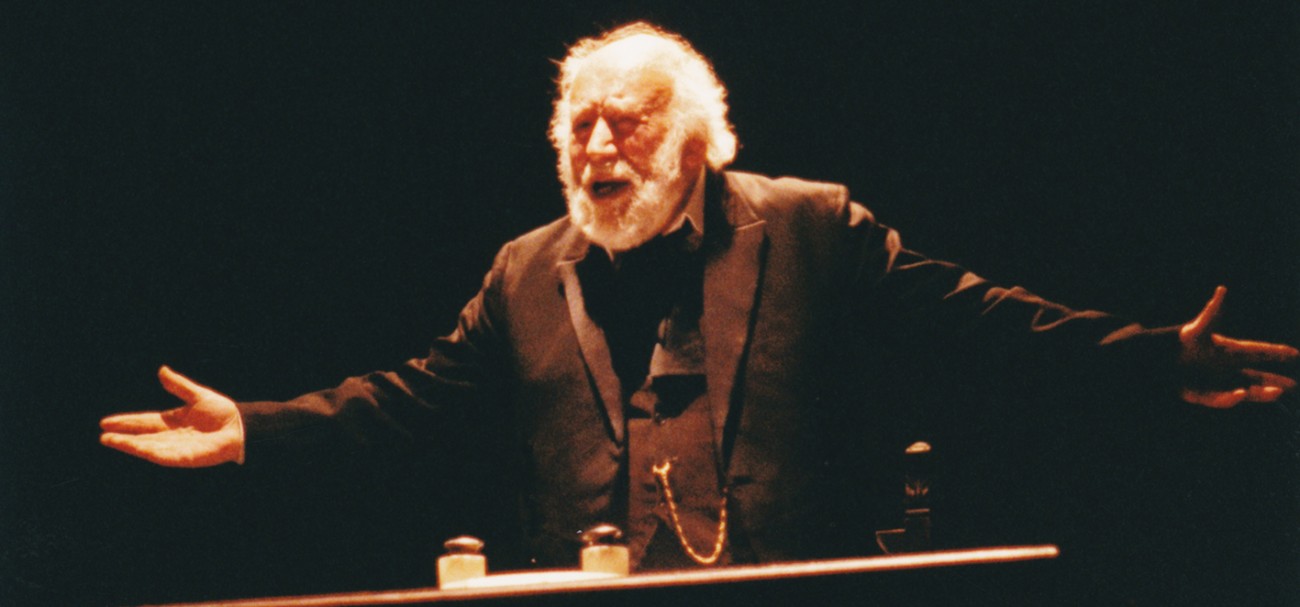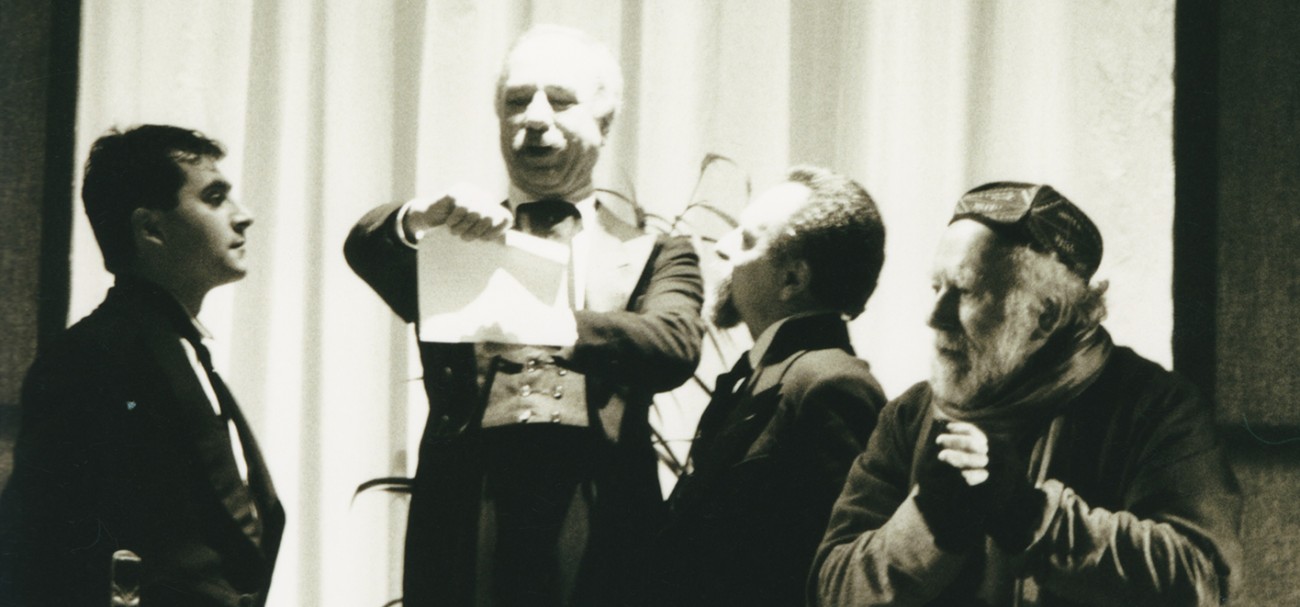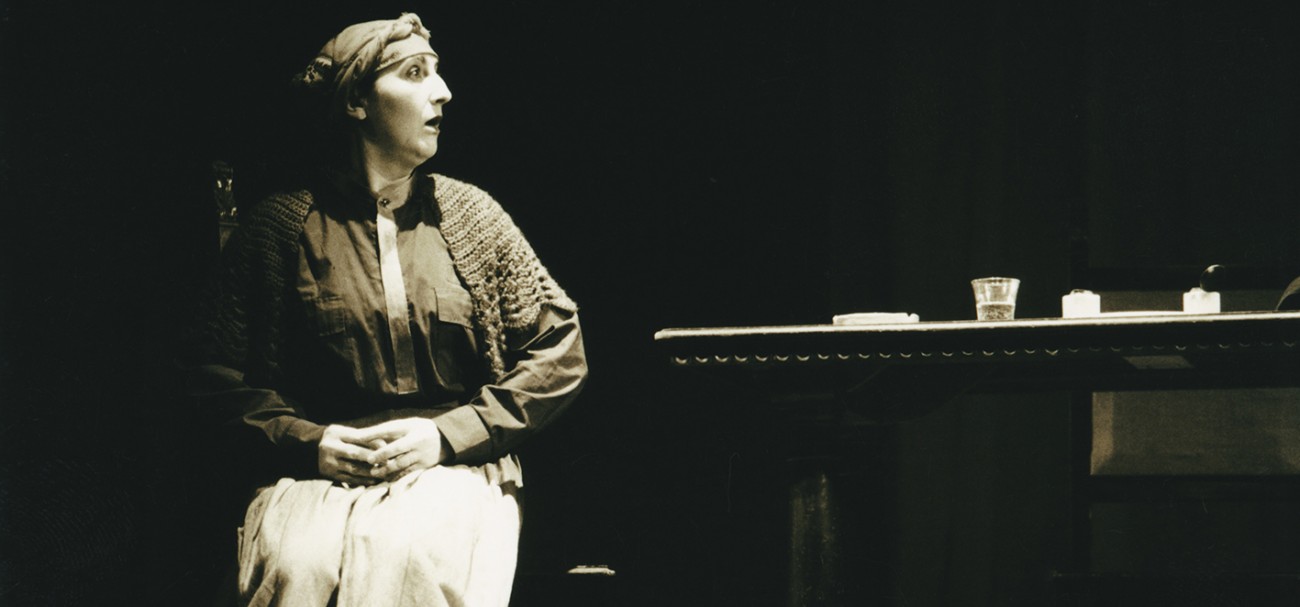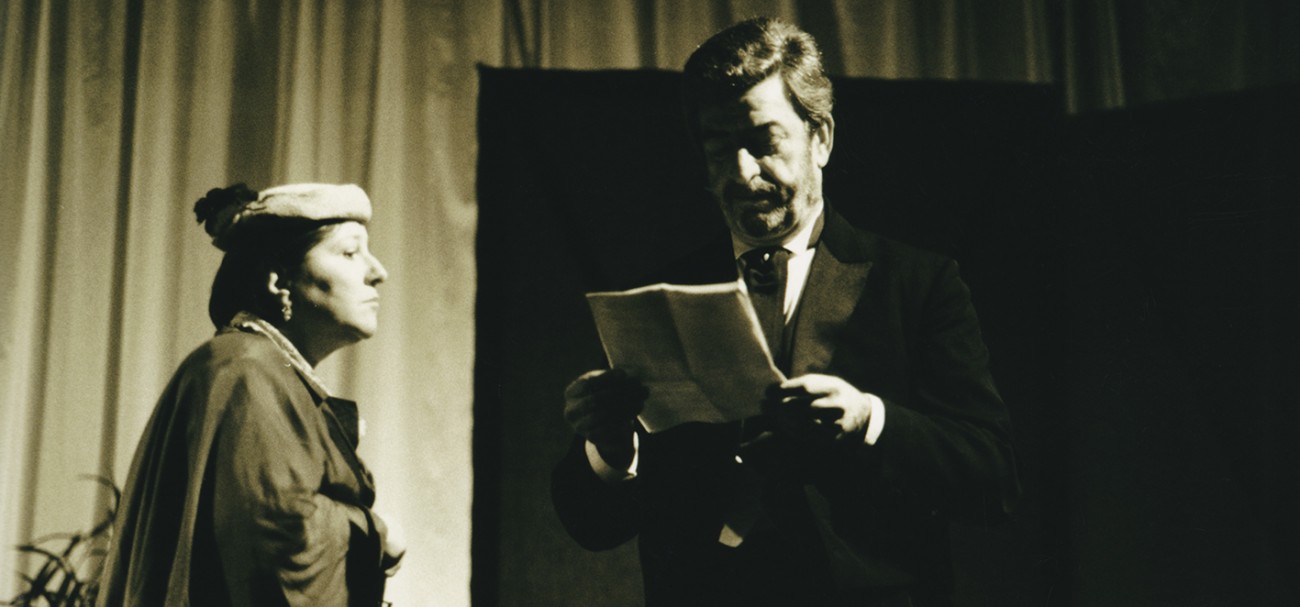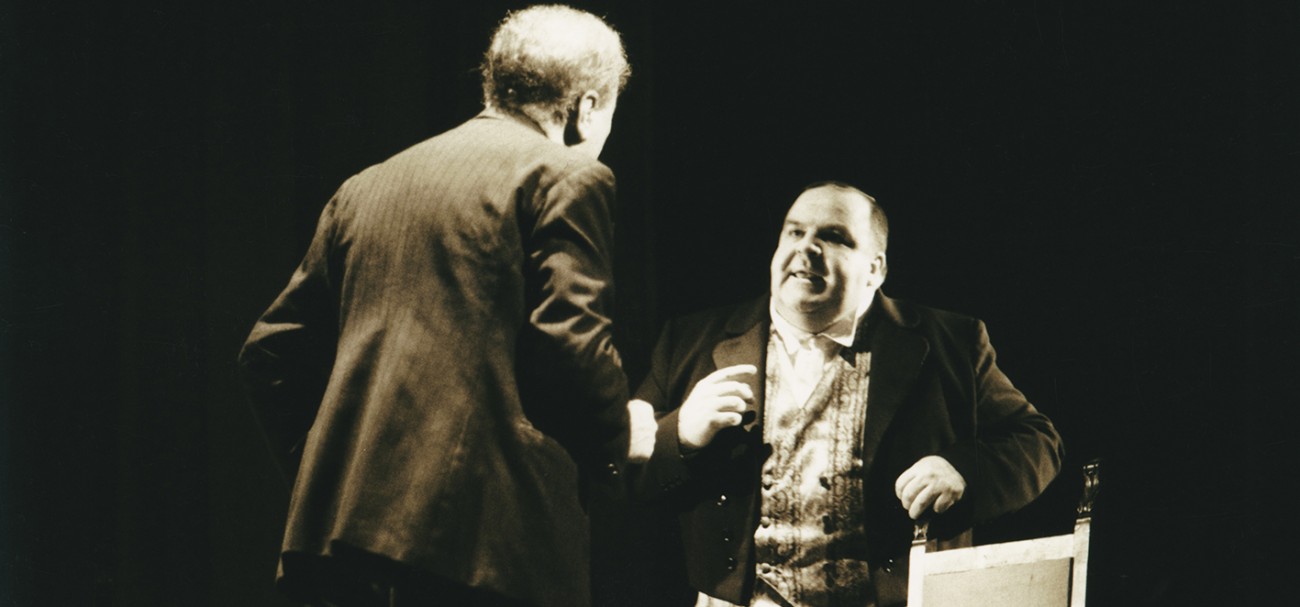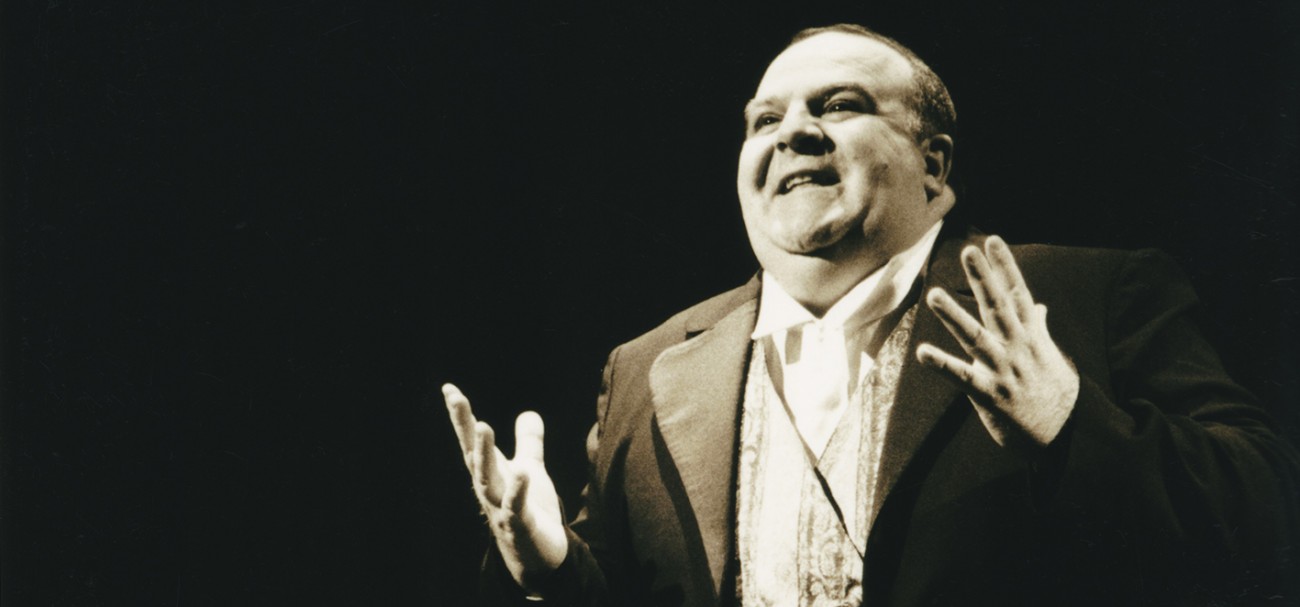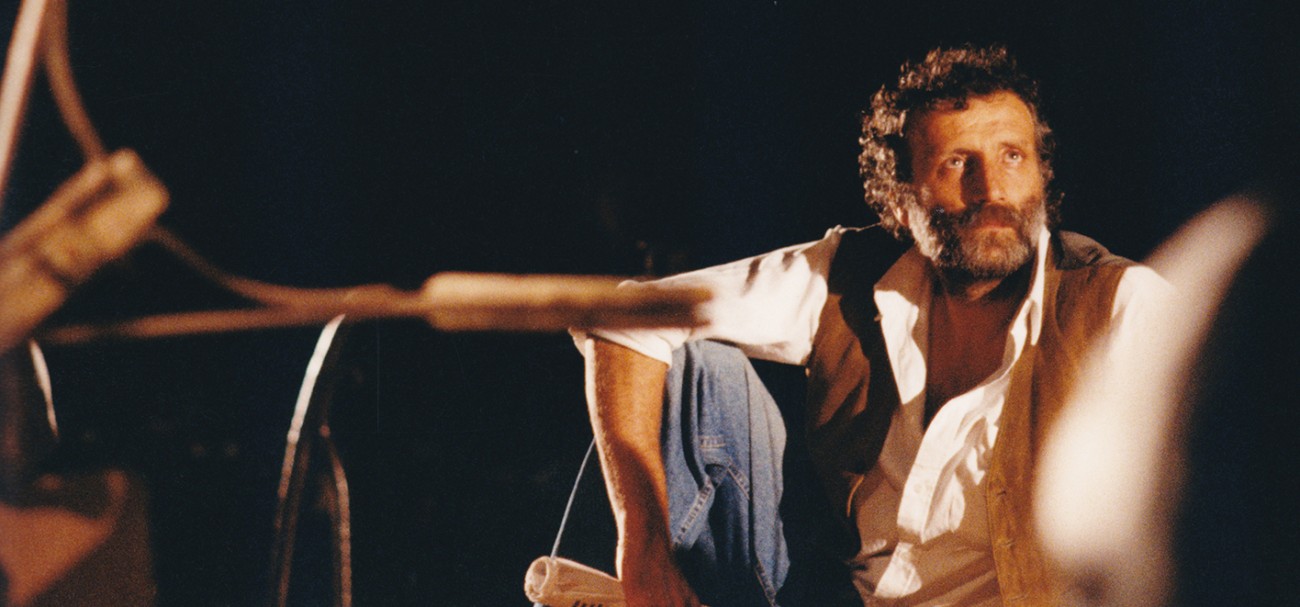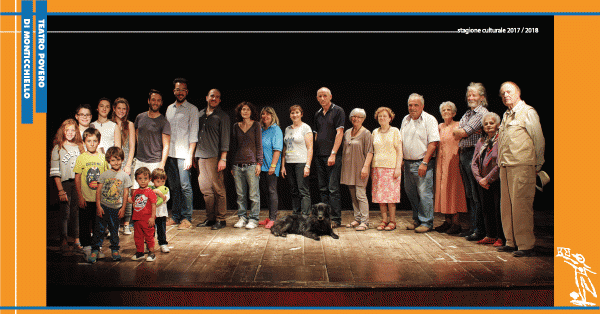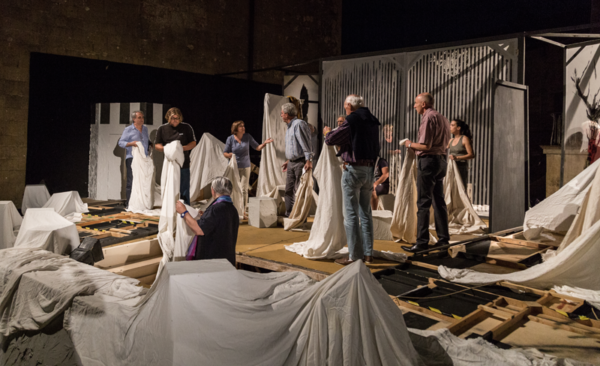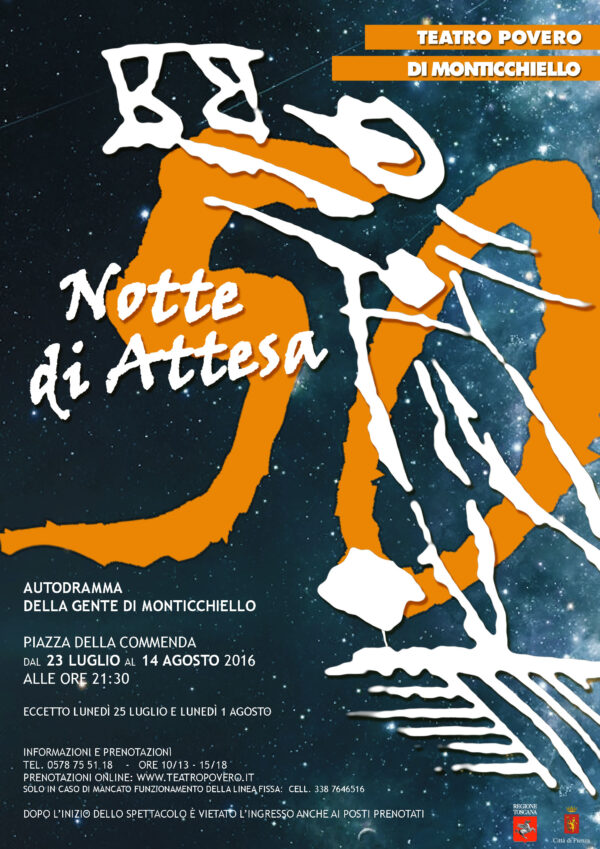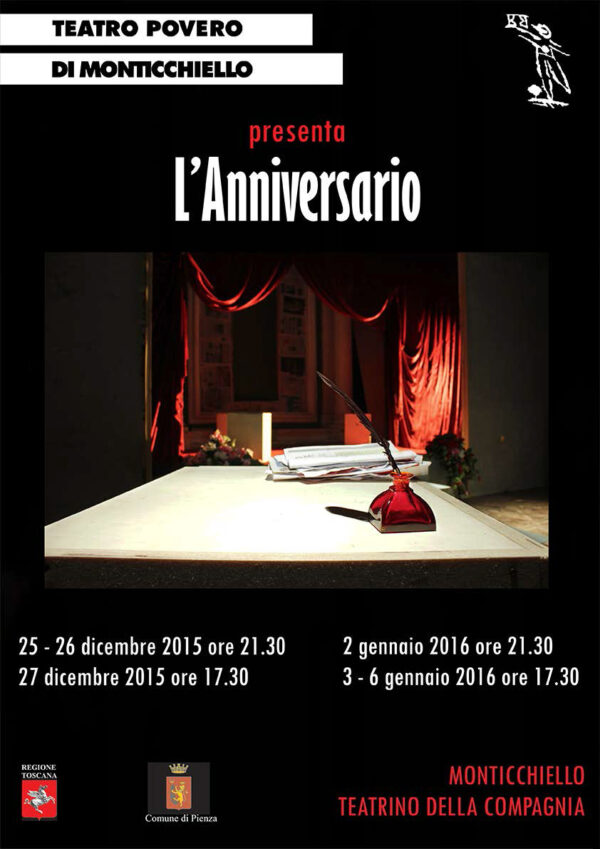An untranslatable title, for 2001. The podere is a basic element in Tuscan landscape and history: it is the farmhouse, the economic and social family unit in the old sharecropping system. It also echoes the word potere, meaning power. Is power now being ‘abused’ in the new economy, leading to an equal ‘misuse’ of podere buildings? The word ‘monads’ is threaded into the title phrase: according to one Italian definition of the word, it designates individuals who live in a unique manner without reference to other people’s norms and habits.
In fact the second half of this autodramma showed an obstinate family of old people who insisted on living in their isolated podere building. They rejected modern life for themselves, but were prepared to exploit romantic-minded tourists who wanted to hire their property as a venue for social occasions. As well as making their own children anxious, the ‘monads’ were shown as being inconvenient to a small community—Monticchiello?—which was seeking a way out of its isolation and economic difficulties. The project was to mount a game of chance, in which the prize would be the right to spend relaxation time in an old-style podere. The best farmhouse to use was the one in which the family chose to maintain their anachronistic existence; and great efforts were made to make them change their minds and move out.
Whatever the rights and wrongs of the arguments, the emotional core of this autodramma was an evocation of the countryside and of peasant civilization, as places and values which cannot be eradicated from the mind of those who have known them. Great force was given to this sequence of speeches by the dominant presence of Rino Grappi, who for years had been the stage incarnation of the peasant patriarch, or capoccia. Sadly, this turned out to be his last appearance for the Teatro Povero.
.

